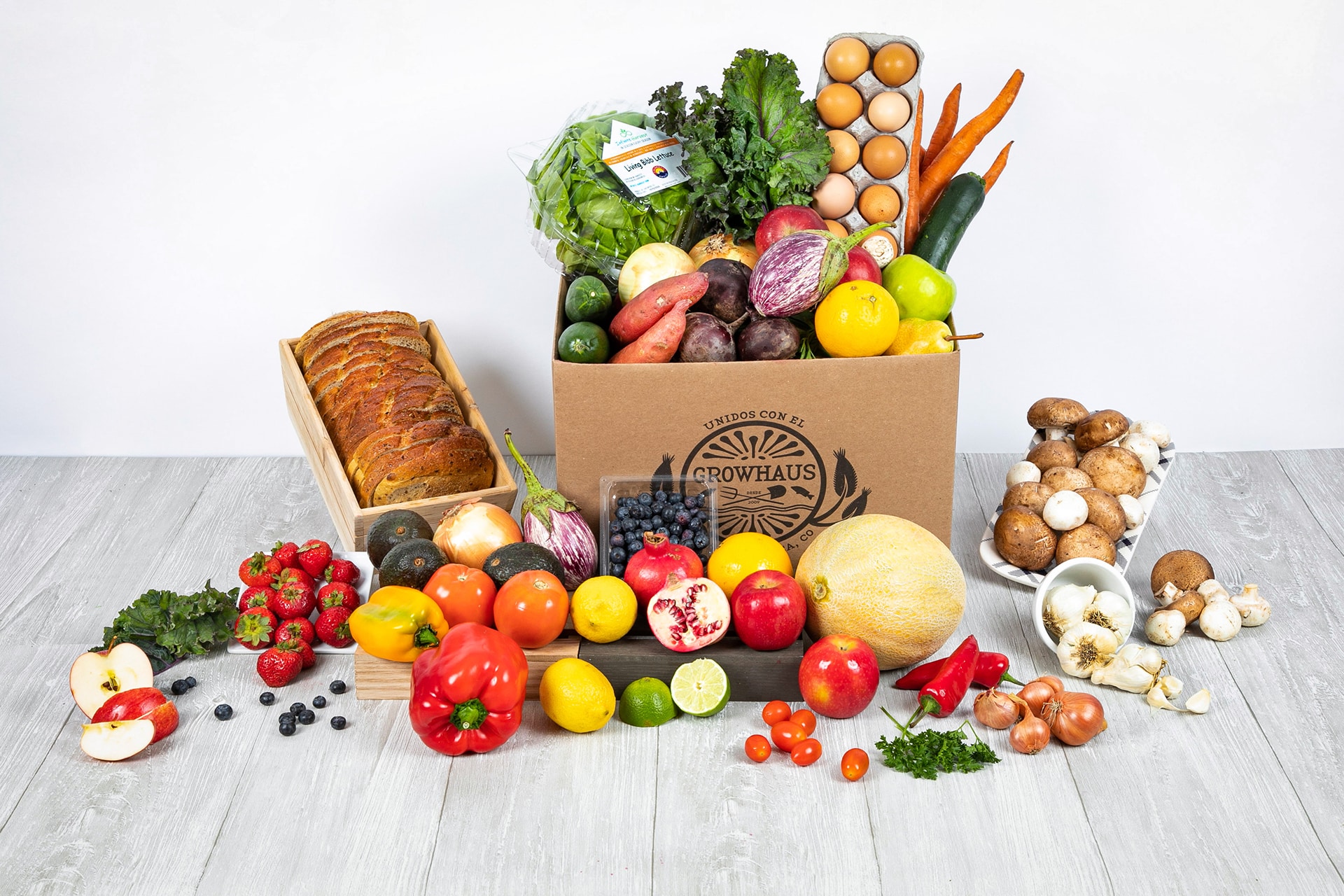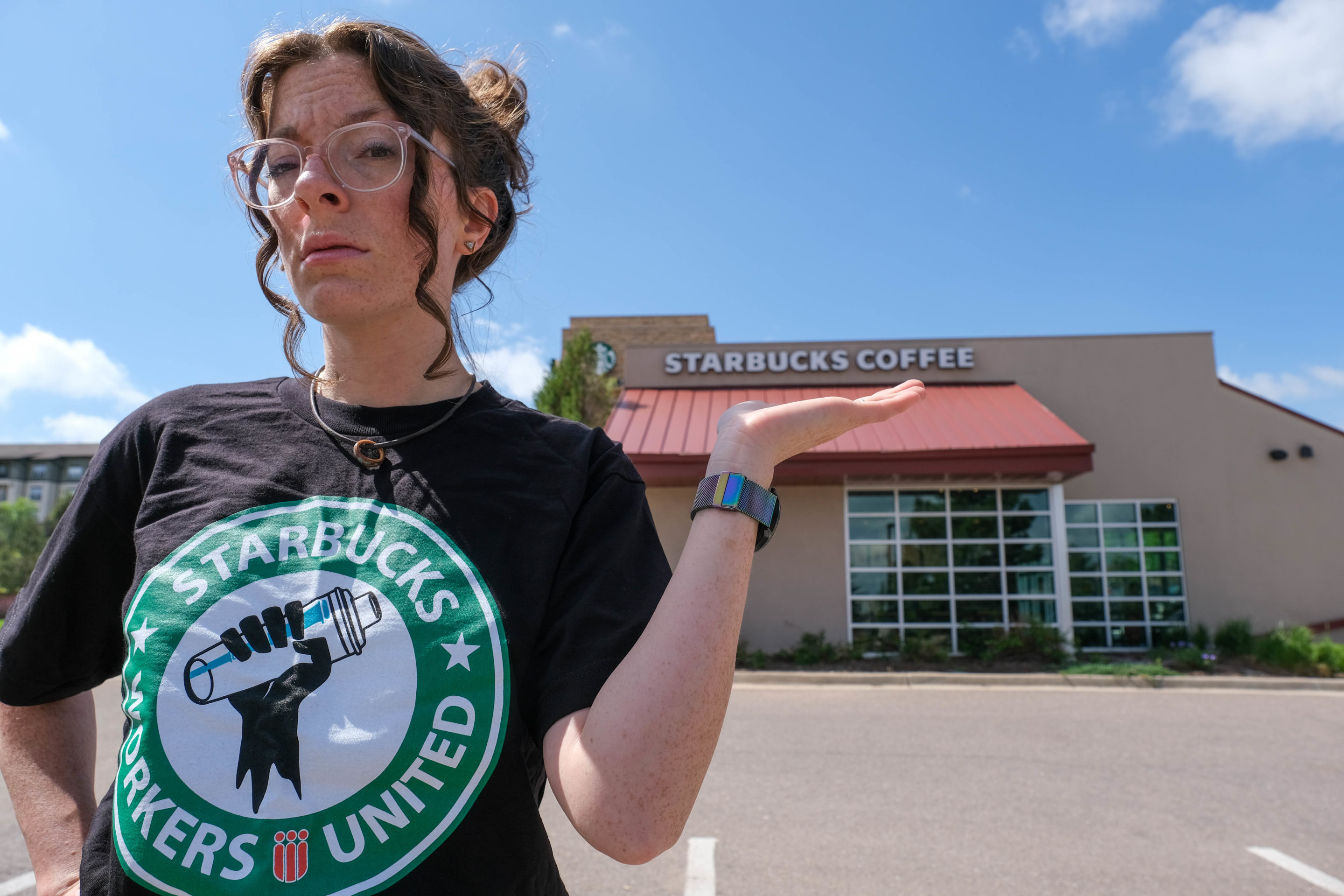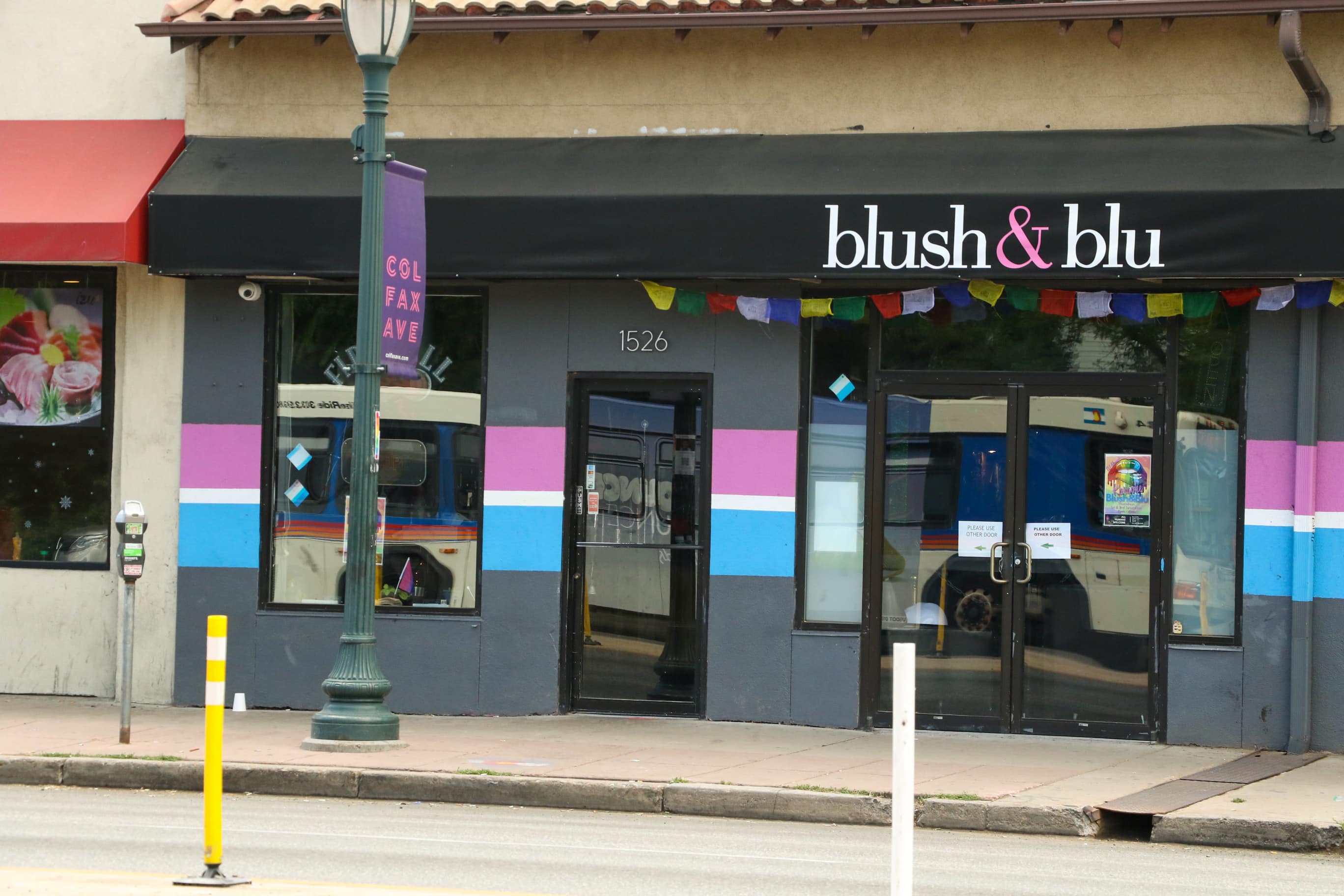//Photo provided by The Growhaus.
Many groups that identify as Latinx pride themselves on flavorful cooking using staples like rice, beans, tortillas, oils and maseca. So, when loads of donated eggplant were left untouched at a food pantry in Elyria-Swansea, The GrowHaus knew why. Culturally speaking, eggplant is rarely used in traditional Latinx cooking. So, it went to waste.
The GrowHaus believes healthy food is a right, not a privilege. The community-driven organization serves the north Denver neighborhoods of Globeville and Elyria-Swansea, known as GES, by cultivating food justice through education and access.
“GES faces a lot of challenging situations and barriers to living a healthy life,” said Kayla Birdsong, former executive director of The GrowHaus. “None of us on the staff are the ones with the answers. We’re the facilitators. We connect resources with community desire.”
The nonprofit believes food access is built upon four pillars: proximity, price, cultural fit and knowledge. In alignment with these values, The GrowHaus committed to educating residents with cooking classes in order to use the free food they received. Volunteers cooked eggplant in one class, in addition to other unfamiliar vegetables, to allow families to taste the dish and learn about its composition. The next time The GrowHaus hosted their food pantry, every last eggplant was taken.
As a historic destination for recent immigrants, GES is a working-class community where many families live in multigenerational households. Nearly 80% of the population identifies as Latinx. The two neighborhoods fall into the category of a “food apartheid.” The area is a food desert, where one-third of the population has to travel a mile or more to get to the nearest supermarket. It’s also defined as a food swamp, where junk food and convenience stores outnumber healthy options. Even though a Natural Grocers opened nearby in 2017, most residents of GES find the grocery store expensive and instead resort to fast food.
With a lack of access to healthy food, compounded by toxic air emissions from traffic on I-70, residents have higher health risks compared to the rest of Denver. In fact, GES was named one of the most polluted zip codes in the country. Throw in a pandemic, and the consequences have been deadly.
“In March when grocery stores started having shortages, our families were freaked out,” Birdsong said. “People were coming to us asking, ‘What do we do, where do we go, how do we get food?’”
Throughout Denver, food banks are experiencing higher demand and less supply. Latinx Coloradans are disproportionately affected by the pandemic, especially after increased unemployment rates. According to Denver Public Health, Denver’s Latinx community has the highest COVID-19 infection rate in the city.
Since the start of the pandemic, The GrowHaus has distributed 15,500 emergency food packages, equivalent to half a million meals, to 600 families living in GES. Food packages include a bag of fresh produce and a bag of food staples.
It has not been a comfortable journey, but Birdsong knows firsthand the challenges faced in GES because she lived in Elyria-Swansea herself for a year and a half. When she first volunteered at The GrowHaus over seven years ago, she uncovered how detrimental it is to a community to not have good food.
“In GES, there is such an amazing culture of food,” Birdsong said. “There are so many families who were ranchers and farmers in Mexico. But that connection is lost once you’re in these neighborhoods with families adjusting to the American lifestyle and the cost of living. I saw so many families who felt disconnected from healthy food.”
Engaging the Community
The GrowHaus works to employ community members, aligning with their grassroots approach, making the majority of their employees BIPOC women.
Jackeline Ruiz moved to Denver in 2019 to become the manager of food distribution. A native of Venezuela, she recognizes the importance of food access in a community.
“I didn’t even speak English when I came to the U.S.,” Ruiz said. “The GrowHaus gave me confidence that I can improve my English and continue my career here in the U.S. They support immigrants with this opportunity.”
Ruiz manages the food boxes that make their way not only to GES residents but also to Denverites who want to support the nonprofit by purchasing a box of produce.
This past June, Araceli Guerrero, who assisted Ruiz in the food packing department, became a promotora apprentice.
The promotora program, translated from Spanish as “community health workers,” is a part of the community outreach model. The Latina-led team connects residents with resources that go beyond food, including support groups and wellness opportunities.
Guerrero has lived in Swansea for the past 13 years. When she first moved to Denver she participated in Cosechando Salud, a GrowHaus program that offers food boxes, cooking classes and community meals.
“I like that this job allows me to contact community members and hear about the challenges they have. They often ask for help or resources and it helps me know what programs we need to offer,” Guerrero said in Spanish through a translator.
In response to COVID-19, promotoras are helping deliver emergency food packages while cultivating relationships between The Growhaus and GES families.
“This neighborhood and community have been very impacted by COVID-19,” Guerrero said. “Many people lost their jobs or had their hours cut. This is a community made up of many immigrants, a lot of Latino folks and folks in the Hispanic community and Spanish speakers.”
Birdsong doesn’t just talk the talk, she walks it too. In January 2021, she stepped down from her position in the hopes someone more representative of GES would take her place. It’s part of her mission to facilitate residents reconnecting to their roots while combating the layers of injustice existing in their neighborhood.
“As a white woman coming into a neighborhood that I’m not a part of, I want to make space for other people,” she said.
Nathan Mackenzie is serving as interim executive director during the transition. He says his goal is to ensure the community is heard during this period.
“This is not a moment of pausing, but continuing to move our mission forward,” Mackenzie said.
If you’re interested in supporting the organization’s mission, you can find more information at foodboxes.thegrowhaus.org.
We hope you enjoyed this article! Did you know you can support your local press for FREE by becoming a member? Subscribe today.





0 Comments